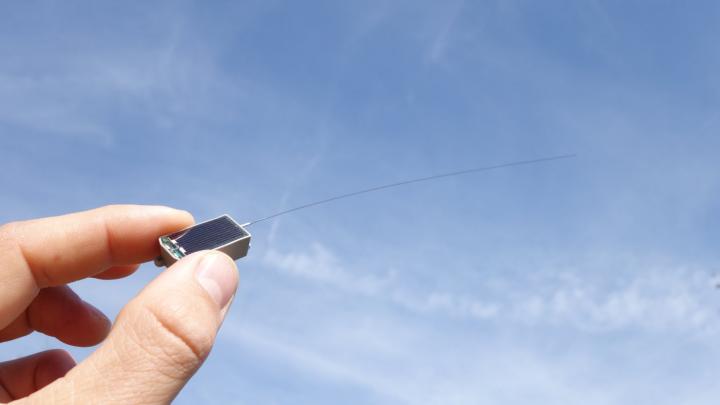Test phase for the animal monitoring system begins

Credit: MPI f. Animal Behavior/ J. Stierle
The German-Russian observation system for animal migration Icarus, went into operation today. With the cooperation project of the Max Planck Society, the Russian space agency Roskosmos and the German Aerospace Center (DLR), scientists hope to investigate the migratory routes of various animal species. After the system is switched on, there will be a test phase lasting several months. During this time, the transmitters as well as the system components on the ground and on board the ISS will be tested. After all tests are completed, Icarus is expected to be available to users in autumn 2020.
With Icarus, the scientists hope to observe the migratory movements of birds and follow the migration routes of mammals and insects. The information should primarily be used for behavioural research and animal welfare. It should also provide data on the possible spread of plant seeds and pathogens. Martin Wikelski from the Max Planck Institute of Animal Behavior in Radolfzell is the scientific Director of the experiment.
In order to obtain the desired data, the researchers plan to equip different animal species with miniature transmitters (tags). “The tags record the position and movements of the animal together with environmental data such as temperature and air pressure”, explains Johannes Weppler, Icarus project manager at DLR Space Management. “The data will then be stored locally before being sent into space”. An integrated computer program in the transmitter will compare the orbit of the ISS with its own positional data. As soon as the space station is within radio range, the transmitter and receiver module of the tag will be activated. It will then make contact with the Icarus antenna on the outside of the ISS.
The on-board computer will then process the data and forward them to the Russian ISS control centre in Moscow. From there, the data will be forwarded to the German and Russian scientists. After an initial evaluation, the information will be stored in an online data base, the Movebank. Scientists around the world will then be able to access this data and create their own analyses. They are coordinated by the Max Planck Institute of Animal Behavior in Germany and the Institute of Geography of the Russian Academy of Sciences.
Test operation
During test operations, the Icarus system will initially communicate only with a ground station of SpaceTech GmbH in Immenstaad am Bodensee. The station will simulate the signals from animal transmitters. Mobile tags will be gradually added – later also on animals. Engineers from Germany and the Russian partner RKK Energia will measure the background noise in the frequency range of Icarus. This will enable them to identify possible sources of interference.
A second aspect of the test operation will be to measure the signal strength and transmission time of the Icarus antenna when it sends commands to the tags to reprogram them. After two to three months, the test operation will be extended to the territory of the Russian Federation. The overall system will thus be fine-tuned to ensure maximum performance and reliability. The initial scientific data is expected towards the end of the four-month test phase.
Second chance
The commissioning of Icarus had originally been planned for summer 2019. However, a technical defect in the on-board computer of the Icarus system upset the plans. Thanks to the astronauts on board the ISS, the defective computer was removed. In September 2019, it returned to earth with an unmanned Soyuz flight.
The German and Russian experts then analysed the source of the error and simultaneously prepared a replacement computer for the launch to the ISS. Finally, in December 2019, the new computer took off from Baikonur on the Russian freighter Progress MS-13 and reached the ISS shortly afterwards. It was then installed by the astronauts and switched on for the first time shortly before Christmas. Because this went as planned, the commissioning will now be resumed.
###
Media Contact
Prof. Dr. Martin Wikelski
[email protected]
49-773-215-0125
Original Source
https:/




